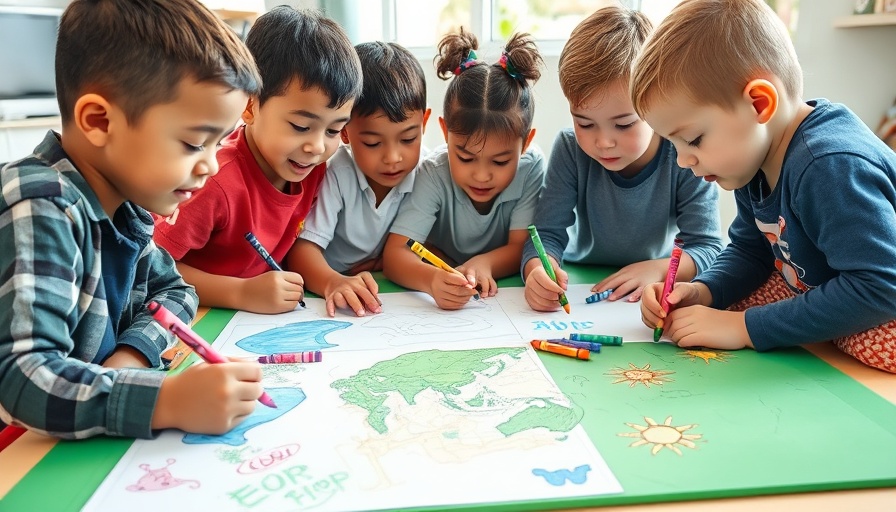
Unprecedented Challenges for Future Generations
The study published in Nature highlights alarming projections about the life experiences of children born in 2020. As climate conditions worsen due to anthropogenic influences, these children will face an unprecedented number of extreme weather events throughout their lifetimes. Even if global warming is curtailed to a 1.5°C increase above pre-industrial levels, studies indicate these children will endure 11 heatwaves in their lifetime, a stark rise compared to just three heatwaves that individuals in pre-industrial climates would experience. This troubling statistic reflects a broader pattern concerning the health of future generations.
Heatwaves and Beyond: The Scope of Climate Extremes
Research indicates that approximately 62 million children born in 2020 will undergo significant exposure to intense heatwaves, droughts, wildfires, and other weather extremes. In a more severe scenario, where warming escalates to 3.5°C, this number jumps dramatically, with 111 million children projected to face similar challenges. The heightened frequency and intensity of these extreme conditions highlight the urgent need for climate action, as they threaten health, safety, and food security.
Understanding Intergenerational Justice
The concept of intergenerational justice is becoming ever more crucial as we assess the long-term implications of climate change. Children born today will inherit not only the challenges of climate change but also the responsibility to alleviate its impacts. Experts argue that transitioning toward sustainable practices is essential in promoting a healthier democratic approach towards environmental action. By emphasizing sustainable development and eco-friendly initiatives, we can reduce the burdens placed on these children.
Global Perspectives: The Regions at Risk
The study identifies regions like the Middle East and North Africa as particularly vulnerable due to expected increases in drought and extreme heat events. Children in these areas could face stark realities like water scarcity and food insecurity, exacerbating pre-existing socio-economic challenges. By understanding these disparities, international policies and local initiatives can focus on providing relief and instituting preventative measures in significant risk zones.
Empowering Change Through Education and Advocacy
Education plays a pivotal role in empowering current and future generations to create meaningful changes. Instilling knowledge about sustainable living practices can equip young people with the tools they need to combat climate change directly. Moreover, it cultivates a sense of responsibility towards the environment, inspiring a more considerable movement toward eco-friendly lifestyles.
Practical Steps Toward a Sustainable Future
Individuals can help mitigate climate change impacts through sustainable living practices. By adopting green energy solutions, such as solar power and community gardening initiatives, everyone can play a part in forging a greener future. Leading a lifestyle that emphasizes producing less waste, opting for organic and ethically sourced products, and supporting businesses practicing corporate sustainability is vital for collective success against climate change.
The Role of Policy and Community Action
Governments and organizations must take decisive action to facilitate sustainable practices and empower communities. Local initiatives fostering sustainability practices—such as promoting green transportation, waste reduction efforts, and environmentally friendly technologies—are vital steps toward safeguarding the planet and its inhabitants. Through environmental regulations and sustainability goals, collective actions can pave the way for a more sustainable future.
Conclusion: A Call to Action for the Next Generation
Children born in 2020 represent both a challenge and an opportunity for our society. It is our collective responsibility to ensure that they inherit a habitable planet. Advocating for sustainable practices, educating younger generations, and engaging in climate-smart initiatives is crucial as we face the reality of climate extremes. Let’s invest in a sustainable future, not just for ourselves, but for the children and generations that will follow.
 Add Row
Add Row  Add
Add 



Write A Comment